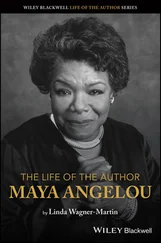This notably different Shakespeare is conjured from a tradition of life-writing rooted in homosocial cultures of the seventeenth century. That tradition excludes the domestic. It should be no surprise therefore that early modern sources for Shakespearean biography ignore the presence of his wife and children. Stratford appears, but “until Rowe cites the still unnamed daughter of Hathaway, this is Shakespeare without a wife: a woman who is mentioned only once in the seventeenth century, and then only to be banned from the posterity of his grave.” Hamnet is not mentioned. Instead, there are hints of an illegitimate son, Davenant, “a poet-playwright son conceived adulterously in a tavern on the road from London to Stratford” (Stewart 2016, pp. 72–73).
Stewart offers a powerful corrective to our placing of familial relationships at the heart of biography and, even more importantly, reveals the mechanics of this particular biographical turn. The recorded events in early lives “routinely take place at various ‘merry’ meetings of men – in chambers at Eton, at a baptism, at a tavern.” But there is a twist. These venues would, in real life, be open to women but when turned into biographical anecdote, almost all female presence is written out of the story. More than that, Shakespeare’s network, his dynasty even, is not his family, but the theater.
He is consistently presented in rivalries with fellow players (Burbage) and playwrights (Jonson); anecdotes attesting to his worth come down through theatre luminaries (Jonson, Davenant, Shadwell); in the first full life, even the archival research is carried out by a Hamlet, Thomas Betterton, and written up by another playwright, Nicholas Rowe. The seventeenth-century Shakespeare is thus insistently embodied as a man of the theatre – but a theatre that takes place in the largely homosocial conviviality of the tavern; is judged in the homosocial conviviality of its critics in Eton; and talked about in the homosocial conviviality of its target audience in Middle Temple chambers.
(Stewart 2016, p. 72)
In some ways, contemporary approaches to life-writing (including my own) return Shakespeare to this biographical tradition. I admire hugely, and have drawn unashamedly upon, the work of scholars such as Van Es, Potter, and Dutton, all of whom offer profound insights into Shakespeare the working playwright, the man of the theater.
Samuel Schoenbaum (1991, p. 5), who should know, argues that the records “nevertheless possess a pattern and significance of their own.” The problem is that the pattern and significance is not always to our taste:
Perhaps the reason we so desperately want the plays to speak to us, is that the story the legal documents tell us is not always the story we want to hear. Many biographers have been troubled by Shakespeare’s lack of civic or institutional philanthropy (given his affluence) in his will or by the evidence of Shakespeare hoarding grain in 1599, at a time when a series of bad harvests meant that many of Stratford’s poor were starving, especially as he writes about exactly this scenario at the beginning of Coriolanus . Or by the fact that in a Stratford protest against proposed land enclosures by William Combe in 1614–15, Shakespeare hired a lawyer to protect his own land and appears to have supported Combe.
(Maguire and Smith 2012, p. 109)
Whatever the reasons for the lack of traditional “documentary” biographical materials, it has had an effect on our understanding of Shakespeare’s life. Since nature abhors a vacuum, “later ages have filled the picture with guesswork, legend and sentiment,” writes Dutton (2016, p. 2), who is tolerant of guesswork, but critical of legend and sentiment. And harnessed “Shakespeare” to their cause.
Emma Smith (2012, p. 223) offers a scathing critique of this kind of thing: claims that “he retained the old religion of Roman Catholicism, or that he was gay, or that he was politically conservative, or whatever, tend to reveal more about the priorities of the speaker than the subject.” Smith’s list is a little slippery. “Gay” is a modern term: if we call Shakespeare gay we are very obviously co-opting modern terminology to understand a man 400 years dead. But keeping the “old religion” and “politically conservative” are less straightforward. Both concepts meant something very different then than they do now. Shapiro (2005b, pp. 9–10) is excellent on this:
Even the meaning of such concepts as individuality was different. Writers, including Shakespeare, were only beginning to speak of “individual” in the modern sense of “distinctive” or “special”, the exact opposite of what it had long meant, “inseparable”. This was also an age of faith, or at the least one in which church attendance was mandatory; religion, too played a greater role in shaping how life, death and the afterlife were imagined. All this suggests that, as much as we might want Shakespeare to have been like us, he wasn’t. We call this period early modern or pre-modern for good reason.
Let’s go back to April 1564, the documentary record, and conventional life-writing. “ Gulielmus filius Johannes Shakspere ” is baptised in Holy Trinity Parish Church, Stratford-upon-Avon, Warwickshire. He is named William by his parents John and Mary perhaps in honor of their friends and business associates, William Smith the haberdasher and William Tyler the butcher. Baby William, one of eight children to be born to the Shakespeares, but one of only five who would survive into adulthood, will become the most famous British playwright, perhaps the most famous writer in English, ever known.
That Latin quotation means William, son of John Shakespeare. The archive begins with a statement of patriarchal lineage because this is what “family” means in Tudor England. The patriarchal archive was then elaborated with anecdote. In 1657, the first story about Shakespeare’s family would be recorded: he “was a glover’s son – Sir John Mennes saw once his old Father in his shop – a merry cheeked old man – that said – Will was a good Honest Fellow – but he darest have cracked a jest w i th him at any Time” (Plume MS 25, fo. 161 r; transcription in Tromly 2010, p. 278). No matter that Mennes was only two years old when the elder Shakespeare died in 1601, this story informed and still informs the kinds of the Lives we write. Stewart (2016, p. 66) points to Stephen Greenblatt’s (2004) understanding of “merry-cheeked” as an allusion to John Shakespeare’s heavy drinking, which leads him to surmise an alcoholic legacy that Will sought to evade. Duncan-Jones (2001) offers a more niche interpretation: John is a prototype for the husband of Juliet’s Nurse.
There is not an absence of archival evidence as such (and what we do know grows each year). Instead, the evidence which survives skews the telling of Shakespeare’s life in particular directions. Those two examples above, for example, are rooted in patriarchal understandings of what is significant to a man’s life. But there are new questions that can be asked of what has been known for centuries, and familiar anecdotes can be viewed in different ways. Shakespeare’s life, and his Lives, start looking a little different when those questions are asked.
Smith offers a powerful reminder of what’s at stake. “Shakespeare’s stock is so high that to recruit him to your ideological team is a real coup” (Smith 2012, p. 223). Suddenly having the man on our team, not just his writing, becomes important. We feel the need to recruit the author himself, not just his works. This may be why biographies should still be attempted. Yes, any and all biographies are fictions, but the lives they tell were not. Our picture of Shakespeare the man is, in the end, created by the questions we ask of the archive we have, by the value we place on different kinds of documentation: those questions and values have, for centuries, been predominantly driven and informed by elite, white men. We need different eyes looking at Shakespeare. His plays matter to us, but what we write about the man matters too.
Читать дальше











![Уильям Шекспир - The Works of William Shakespeare [Cambridge Edition] [Vol. 1 of 9]](/books/746589/uilyam-shekspir-the-works-of-william-shakespeare-c-thumb.webp)